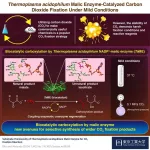“Our evidence-based review aims to equip clinicians with knowledge and tools to help support optimal nutritional and medical outcomes for their patients treated with anti-obesity medications,” said Eli Lilly and Company Executive Director of Global Medical Affairs—Obesity Lisa M. Neff. Neff is the corresponding author of the review paper.
In the review, the authors recommend the “5A’s Model” (Ask, Assess, Advise, Agree, Assist) in working with patients. Clinicians should ask for permission before starting a conversation about weight loss and then assess the patient. Assessment should include a complete medical history, including psychosocial, weight, dietary, and other lifestyle history; physical examination; appropriate lab or imaging studies for assessment of root causes of obesity, identification of obesity-related complications and assessment of nutritional status, including risk of malnutrition. Clinicians should advise patients about treatment options and discuss expectations for treatment. Clinicians and patients should agree on goals related to health, dietary patterns and other lifestyle patterns, and weight. Clinicians should assist patients in addressing challenges and barriers to weight management taking into consideration social determinants of health. Because obesity is a chronic disease that requires a long-term approach, the authors suggest that clinicians arrange for follow-up care and refer patients for additional support as needed such as seeing a registered dietician.
As for nutritional recommendations for patients taking anti-obesity medications, the authors suggest the following based on healthy dietary patterns:
Energy intake: Energy requirements vary based on an individual’s age, sex, body weight, physical activity level, as well as other factors. Recommended minimum goals for energy intake during weight loss should be personalized. In general, energy intakes of 1,200 to 1,500 kcal/day for women and 1,500 to 1,800 kcal/day for men have been recommended as safe during weight loss. Protein: Greater than 60 to 75 g of protein/day and 0.8 to 1.5 g/kg body weight per day can be recommended. Greater than 1.5 g/kg body weight per day may be considered on an individual basis. Recommended sources of protein include beans, lentils and peas; nuts, seeds and soy products; seafood; lean meat, poultry, low-fat dairy foods and eggs. Meal replacement products typically containing 15–25 g of protein/serving may be recommended when consumption from whole foods is insufficient. Carbohydrates: Between 45% to 65% of energy intake. Limit added sugars to less than 10% of energy intake. Recommended sources include whole grains, fruits, vegetables, nuts and seeds, and dairy foods such as milk and yogurt and dairy alternatives like soy milk. Fats: Between 20% to 35% of energy intake. Limit saturated fat to less than 10% of energy intake. Fried and high-fat foods should be avoided to decrease gastrointestinal side effects associated with anti-obesity medications. Good sources of fats include nuts and seeds, avocado, vegetable oils, fatty fish and seafood. Fiber: Recommended amount is 21–25 g/day for adult women and 30–38 g/day for adult men depending on age. Good sources of fiber include fruits, vegetables and whole grains. Use of a fiber supplement may be considered when patients are unable to meet fiber goals with food alone. Micronutrients: Micronutrients of public health concern for U.S. adults include potassium, calcium and vitamin D. Additional nutrients of concern include iron for women of childbearing age and vitamin B12 in older adults. Individuals with obesity are at increased risk of micronutrient deficiencies such as vitamin D, folate and thiamine. Guidelines recommend increased intake of fruits, vegetables, low-fat dairy products and fortified soy alternatives. Recommendations also include supplementation with a complete multi-vitamin, calcium and vitamin D as appropriate. Fluids: Targeted fluid intake should be greater than 2 to 3 L/day. Recommended sources include water, low-calorie beverages such as unsweetened coffee or tea, or nutrient-dense beverages such as low-fat dairy or soy alternatives. Limitation or avoidance of caffeine is recommended during weight loss due to the potential diuretic effect of high caffeine intake. The authors recommend ongoing monitoring of dietary intake and nutritional status during treatment with anti-obesity medications. Regular monitoring can facilitate early recognition and management of gastrointestinal symptoms, mood disorders and inadequate nutrient or fluid intake.
The authors explain that limited evidence exists to guide nutritional recommendations for patients receiving new anti-obesity medications that have an efficacy of 15% or more weight reduction. Additional research is needed to address this knowledge gap.
“Simply focusing on weight loss is insufficient for optimal health,” said Jessica Alvarez, PhD, RD, associate professor of medicine, Division of Endocrinology, Metabolism and Lipids, Emory University School of Medicine, Atlanta, Ga. Alvarez was not associated with the research.
She added that “people with obesity are already at risk for some nutrient deficiencies. This is an important guide acknowledging the need for thorough nutritional assessment before and during treatment with anti-obesity medications. Many patients need detailed guidance on what and how much to eat to ensure optimal diet quality, avoid nutrient deficiencies and avoid excessive muscle loss while taking anti-obesity medications. This work also highlights the need for rigorous clinical research to establish dietary recommendations specific to people being treated with anti-obesity medications.”
The current review was based on a PubMed Search using a variety of keywords such as dietary, nutritional, nutrition, weight loss, obesity, obese, very low-calorie diet, malnutrition, bariatric, guidelines and reference. Manuscript reference lists were also reviewed. Because this was a narrative review, searches were augmented with relevant research by expert consensus. Nutritional recommendations were based on evidence from the general population, low-calorie diets, and bariatric surgery, including observations of preoperative patients.
Other authors of the review include Jaime P. Almandoz, Southwestern Medical Center, Division of Endocrinology, University of Texas, Dallas, Texas; Thomas A. Wadden, Department of Psychiatry, University of Pennsylvania, Philadelphia, Pa.; Colleen Tewksbury, Department of Surgery, University of Pennsylvania, Philadelphia, Pa.; Caroline M. Apovian, Division of Endocrinology, Diabetes and Hypertension, Brigham and Women’s Hospital, Boston, Mass.; Angela Fitch, Knownwell, Boston, Mass.; Jamy D. Ard, Department of Epidemiology and Prevention and Department of Medicine, Wake Forest University School of Medicine, Winston-Salem, N.C.; Zhaoping Li, Center for Human Nutrition, University of California Los Angeles, Los Angeles, Calif.; Jesse Richards, Department of Internal Medicine, University of Oklahoma School of Medicine, Tulsa, Okla.; W. Scott Butsch, Cleveland Clinic Bariatric and Metabolic Institute, Cleveland, Ohio; Irina Jouravskaya, Eli Lilly and Company, Indianapolis, Ind.; and Kadie S. Vanderman, Syneos Health, Morrisville, N.C.
The authors declared multiple conflicts of interest. Refer to the review for more information.
This work was funded by Eli Lilly and Company. Writing assistance was provided by Syneos Health, also supported by Eli Lilly and Company.
The review, titled “Nutritional Considerations with Anti-Obesity Medications,” will be published later this year in the journal Obesity.
# # #
The Obesity Society (TOS) is the leading organization of scientists and health professionals devoted to understanding and reversing the epidemic of obesity and its adverse health, economic and societal effects. Combining the perspective of researchers, clinicians, policymakers and patients, TOS promotes innovative research, education and evidence-based clinical care to improve the health and well-being of all people with obesity. For more information, visit www.obesity.org.
END


